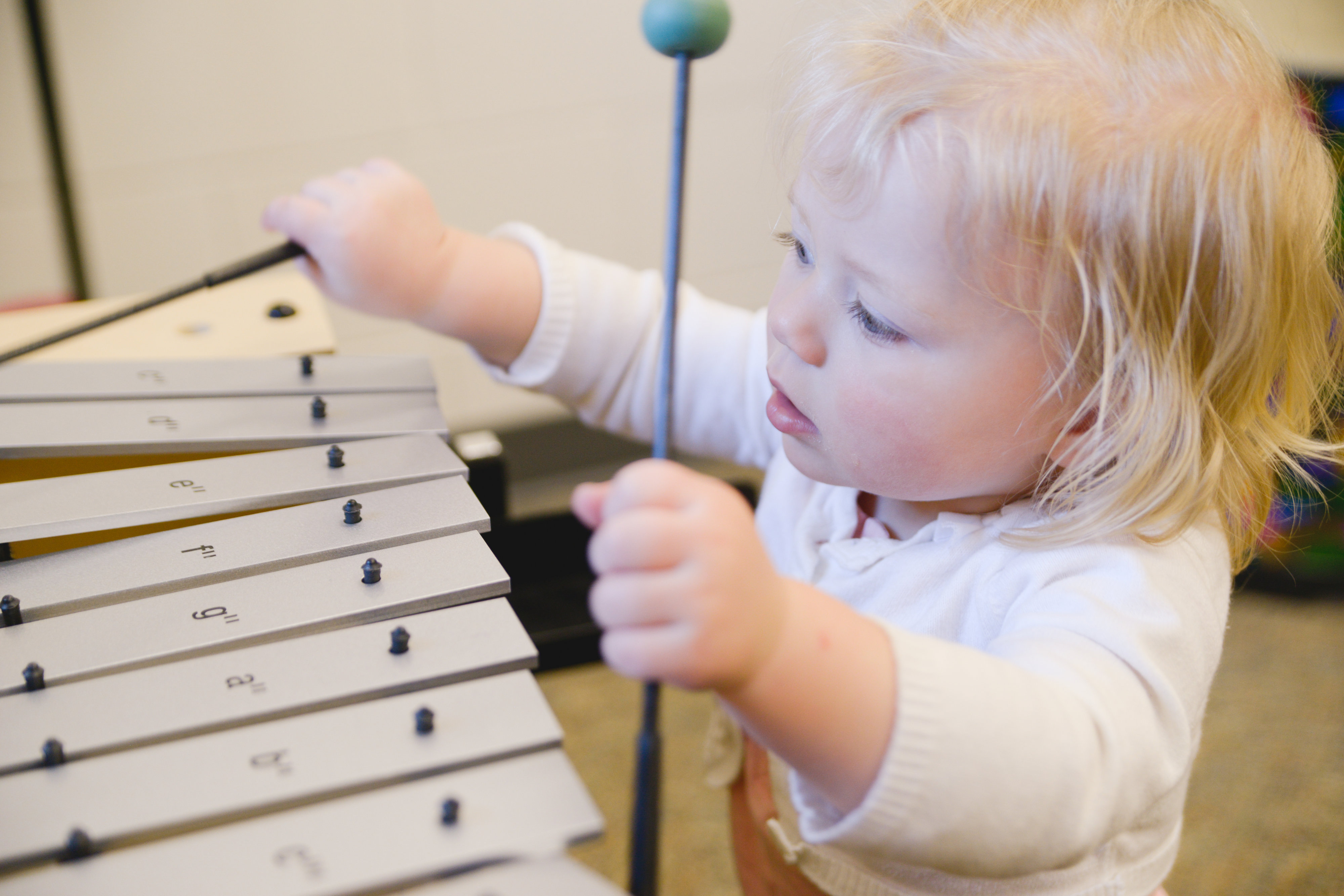Music Therapy Can Be Included as an Early Intervention Service
Music Therapy can be included as an Early Intervention Service under the IDEA Legislation. This means that your child can reap the benefits of music therapy during his or her time in Early Intervention.
The Individuals with Disabilities Education Act (IDEA) passed in 1986 supports states in providing identification of early intervention services for young children who have disabilities or developmental delays. Part B of the legislation outline the regulations associated with Special Education and Individualized Education Plans, or IEP’s. Part C of the legislation outlines the regulations associated with Early Intervention and Individualized Family Service Plans, or IFSP’s. The services in Part B are referred to a “Related Services”, and those in Part C are termed “Early Intervention Services”.
The Early Intervention Services specifically listed include:
- Assistive technology device and service
- Audiology services
- Family training, counseling, and home visits
- Health services
- Medical services
- Nursing services
- Nutrition services
- Occupational Therapy
- Physical Therapy
- Psychological services
- Service coordination services
- Sign language and cued language services
- Social work services
- Special instruction
- Speech-language pathology services
- Transportation and related costs
- Vision services
-
Other services
It is in #18 (Other Services) that music therapy can be applied. The law specifically states in referring to the services list section:
“Nothing in this section prohibits the identification in the IFSP of another type of service as an early intervention service provided that the service meets the criteria identified in paragraph (a) of this section or of another type of personnel that may provide early intervention services in accordance with this part, provided such personnel meet the requirements in §303.31.”
The law goes on to state:
Specifically, §303.13(d) states that “(t)he services and personnel identified and defined in paragraphs (b) and (c) of this section do not comprise exhaustive lists of the types of services that may constitute early intervention services or the types of qualified personnel that may provide early intervention services.” Further, §303.13(d) states that “[n]othing in this section prohibits the identification in the IFSP of another type of service as an early intervention service provided that the service meets the criteria identified in paragraph (a) of this section.”
Section 303.13(d) clearly conveys that the early intervention services identified in §303.13(b) are not an exhaustive list and may include other developmental, corrective, or supportive services that meet the needs of a child as determined by the IFSP Team, provided that the services meet the criteria identified in §303.13(a) and the applicable State’s definition of early intervention services. We added the previous definitions of nursing services and nutritional services to these final regulations because these definitions are defined in the current regulations and relied upon by the field. However, adding new definitions of additional services identified by the commenters, such as music therapy and respite care, is not necessary.
Early Intervention Programs are only required to provide related services that are NECESSARY for the child to meet their IFSP goals. If the child is making progress towards their goals, then music therapy is not necessary. However, for those children who are not progressing as they should, music therapy may be a reasonable and effective solution. In these cases, music therapy becomes cost effective as the need for other services may diminish for that particular child and he or she makes strides in music therapy.
One of the unique things about music therapy is that goals are not domain-specific. Unlike speech therapy focusing on communication or physical therapy focusing on physical development, music therapists are trained in how to use music across the board. Some of the domains addressed include social and emotional skills, expressive and receptive communication, fine and gross motor development, cognitive development, and sensory processing. Music, when used correctly, is able to access all of these areas and augment progress in substantial ways.
So how can music therapy be included as part of the Early Intervention programming? A program can contract with a music therapist and bring in their services when it appears that a child may benefit. These referrals can be for individual music therapy or community parent child music therapy groups.
For more information and to read the law yourself, you can find a link to it HERE
This is part 2 of a 4-part series on music therapy in Early Intervention programs. All related posts include:
#1 Rationale for Music Therapy in Early Intervention
#2 Music Therapy IS a Related Service in Early Intervention

